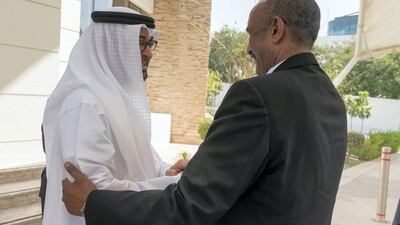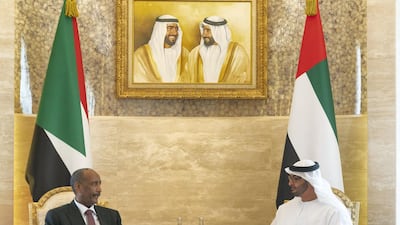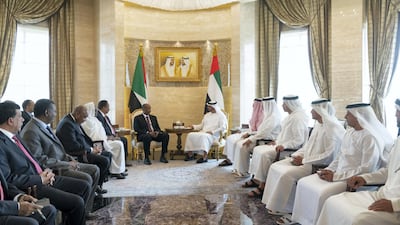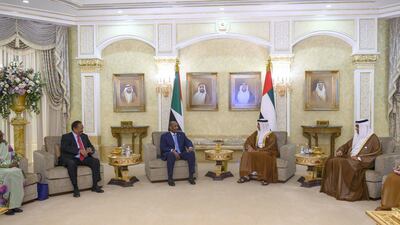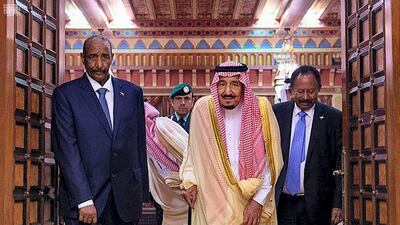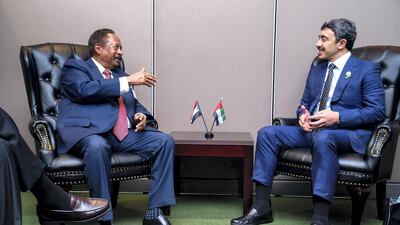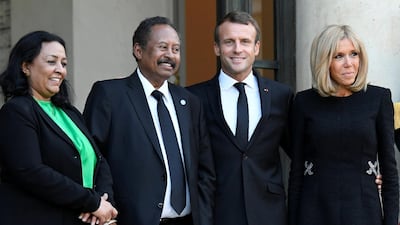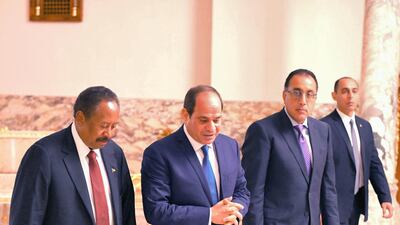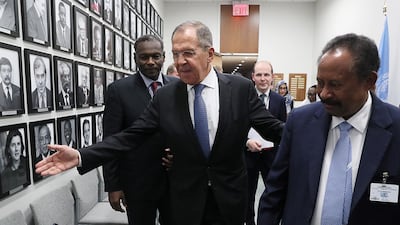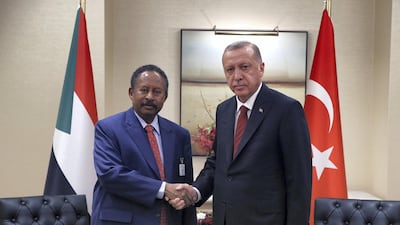Sheikh Mohamed bin Zayed, Crown Prince of Abu Dhabi and Deputy Supreme Commander of the UAE Armed Forces, held talks on Tuesday with Sudan’s two most senior leaders who are on the second stop of a Gulf tour chiefly designed to rehabilitate Khartoum’s relations with its Arab neighbours six months after the removal of dictator Omar Al Bashir.
Making their first foreign visit together, Chairman of the Sovereign Council Abdel Fatah Al Burhan and transitional Prime Minister Abdalla Hamdok visited Saudi Arabia over the weekend before arriving in the United Arab Emirates on Monday.
The UAE’s official news agency, WAM, reported on Tuesday that the two Sudanese leaders met Sheikh Mohammed at the Sea Palace in the capital and discussed with “brotherly relations and co-operation between the two countries as well as a number of Arab and regional issues and developments."
Sheikh Mohamed affirmed that the UAE will continue to stand by Sudan and "will support the Sudanese government and people on its development journey to attain growth, security and stability".
Sudan has long had close relations with Saudi Arabia and the Emirates, traditionally among Khartoum’s top investors and economic backers. However, Mr Al Bashir’s rule poisoned relations between Khartoum and the two Gulf Arab allies.
Saudi Arabia and the UAE provided Sudan with a US$3 billion (Dh11 bn) aid package soon after Mr Al Bashir’s removal in April and Sudan’s new rulers are attempting to tackle an economy battered by Mr Al Bashir’s corrupt government and the seemingly endless bouts of civil strife that defined his 29-year rule.
The visit to both states is part of an energetic charm offensive to regain international respectability after decades of suffering as a near-pariah state.
However, Sudan’s full rehabilitation will not be complete until its name is removed from the US list of state sponsors of terrorism.
Saudi Arabia and Egypt have already called for the removal of Sudan from the US list. The process of removing Sudan from the list, on which it was placed in 1993 for its links to violent militant groups, is unlikely to be swift, leaving Khartoum for now with little hope of securing aid from international institutions such as the World Bank or the International Monetary Fund and dependent on bilateral aid from wealthy Arab neighbours.
Sudan has traditionally been touted as a nation with vast, mainly agricultural potential, but its rickety infrastructure, chronic lack of funds and civil wars meant investors could only scratch the surface of that potential.
But Mr Hamdok, an economist with many years of experience at the UN and regional agencies, has vowed in a series of speeches over the past week to make his country attractive to foreign investment. The latest pledge came on Monday during a meeting he had with Saudi investors in Riyadh.
Turning Sudan into a magnet for investment may be a tall order given the deplorable state of its economy and the inefficiency of its corrupt civil service. But, for now, the prime minister is preparing the groundwork by introducing a new and more easy-to-deal-with Sudan to the international community.
Last month, he addressed the UN General Assembly, something that Mr Al Bashir could not do after he and several of his top aides were indicted by the International Criminal Court in 2010 for crimes against humanity and genocide during his government’s fight against rebels in the western Darfur region in the 2000s.
Mr Hamdok later travelled from New York to France, where he met with French President Emmanuel Macron. His foreign trip followed rare and groundbreaking visits to Khartoum, the Sudanese capital, by senior West European officials, including ministers from Germany, Sweden, Finland and Britain.
